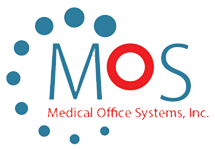In the ever-evolving landscape of healthcare billing, a new player is taking center stage: Hierarchical Condition Category (HCC) Risk-Based Coding. This shift is reshaping how healthcare providers approach diagnosis coding, especially for Medicare Advantage plans and value-based care programs.
Understanding HCC Risk-Based Coding
HCC Risk-Based Coding is a method used by Medicare to estimate future healthcare costs for patients. Unlike traditional ICD-10 coding, HCC coding requires a higher level of specificity and focuses on capturing the overall health status of a patient.
Key Features of HCC Coding:
- Based on hierarchical condition categories
- Focuses on chronic conditions
- Requires annual documentation
- Directly impacts Medicare Advantage reimbursement rates
- Influences quality measures in value-based care programs
The Shift from Traditional ICD-10 Coding
While ICD-10 codes are still crucial, HCC coding adds another layer of complexity. Here’s how they differ:
| ICD-10 Coding | HCC Risk-Based Coding |
|---|---|
| Used for all patients | Primarily affects Medicare Advantage patients and value-based care programs |
| Focuses on current health issues | Captures overall health status and risk factors |
| Updated as conditions change | Requires annual reassessment |
| Indirect impact on reimbursement | Direct impact on Medicare Advantage reimbursement and quality measures |
The Importance of Specificity in HCC Coding
In the world of HCC coding, specificity is king. Vague or general codes no longer suffice. Healthcare providers must now document and code for the most specific and severe manifestation of each condition.
For example, instead of coding for “diabetes,” providers must specify:
- Type of diabetes
- Severity
- Complications
- Related conditions
This level of detail ensures accurate risk assessment, appropriate reimbursement, and proper evaluation of quality measures.
Impact on Medicare Advantage Reimbursements and Value-Based Care
The stakes are high when it comes to HCC coding. Medicare Advantage plans use HCC scores to determine reimbursement rates. Additionally, these scores play a crucial role in value-based care programs by influencing quality measures and performance evaluations.
How HCC Scores Affect Reimbursement and Quality Measures:
- Higher HCC scores indicate patients with more complex health needs
- Complex patients require more resources and care
- Higher scores lead to increased reimbursement rates
- Accurate coding ensures fair compensation for care provided
- HCC scores help adjust quality measures for patient complexity
- More precise coding leads to better-aligned quality benchmarks in value-based care
HCC Coding and Value-Based Care
HCC coding is intricately linked to value-based care initiatives. Here’s how:
- Risk Adjustment: HCC codes help adjust quality measures based on patient complexity, ensuring fair evaluations of provider performance.
- Resource Allocation: Accurate HCC coding helps healthcare organizations allocate resources more effectively to high-risk patients.
- Quality Measurement: Many value-based care programs use HCC scores to set and evaluate quality benchmarks.
- Care Coordination: Comprehensive HCC coding provides a fuller picture of patient health, facilitating better care coordination across providers.
Challenges for Healthcare Providers
The transition to HCC Risk-Based Coding presents several challenges:
- Increased documentation requirements: Providers must capture more detailed patient information.
- Annual reassessment: Conditions must be re-documented each year, even if they’re chronic.
- Coder education: Billing staff need training on HCC coding principles and their impact on value-based care.
- EHR updates: Electronic Health Record systems may need updates to support HCC coding and quality measure tracking.
- Balancing coding and care: Providers must ensure thorough coding without compromising patient interaction time.
How MOS Billing Can Help
At MOS Billing, we understand the complexities of HCC Risk-Based Coding and its role in value-based care. Our team of experts can assist healthcare providers in navigating this new landscape:
- Comprehensive training: We offer education on HCC coding principles, best practices, and their impact on quality measures.
- Documentation review: Our experts can review and optimize your documentation processes to support both accurate coding and quality reporting.
- Coding audits: We conduct regular audits to ensure accuracy, compliance, and alignment with value-based care goals.
- Reimbursement optimization: Our team works to maximize appropriate reimbursements while supporting quality measure achievement.
- Value-based care support: We help align your coding practices with value-based care initiatives to improve overall performance.
Q&A: Understanding HCC Risk-Based Coding in Value-Based Care
Q: Why is HCC coding becoming more important in value-based care?
A: HCC coding not only impacts reimbursement rates for Medicare Advantage plans but also plays a crucial role in risk adjustment for quality measures in value-based care programs.
Q: How does HCC coding affect quality measures?
A: HCC codes help adjust quality measures based on patient complexity, ensuring that providers are evaluated fairly regardless of their patient population’s health status.
Q: Can improved HCC coding lead to better patient outcomes?
A: Yes, more comprehensive HCC coding can lead to better-coordinated care, more accurate resource allocation, and improved focus on managing complex conditions, all of which can contribute to better patient outcomes.
Q: Is HCC coding only relevant for Medicare Advantage plans?
A: While it’s critical for Medicare Advantage, HCC coding principles are becoming increasingly relevant across the healthcare industry, especially in value-based care programs.
Conclusion
HCC Risk-Based Coding represents a significant shift in healthcare billing practices and plays a pivotal role in value-based care initiatives. By embracing this change and partnering with experienced billing experts like MOS Billing, healthcare providers can ensure accurate reimbursements, improve patient care, and excel in value-based care programs.
Stay ahead of the curve with MOS Billing – your partner in navigating the complexities of modern healthcare billing and value-based care.


